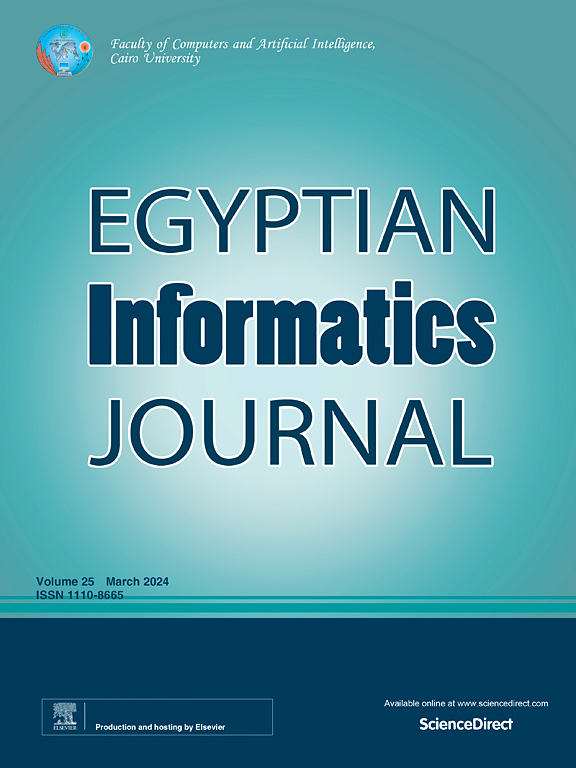Improving scalability, energy efficiency, and cost-effectiveness in Kubernetes clusters using a nonlinear regression-based predictive replica model and ORLE algorithm
IF 4.3
3区 计算机科学
Q1 COMPUTER SCIENCE, ARTIFICIAL INTELLIGENCE
引用次数: 0
Abstract
Container-based deployments have transformed how modern applications are packaged, deployed, and scaled. They bring increasing benefits in terms of development agility, testing, and collaboration. Kubernetes is a famous container orchestration engine that manages the life cycle of containerized applications by automatically scaling the containers and load balancing among them. In this paper, we present an application-level leader election method known as ORLE(Optimal Replica Leader Election). After conducting a detailed performance analysis of ORLE, we also developed a nonlinear regression Predictive Replica Model that predicts the throughput in real time, which helps in the early identification of conditions that require replicas’ scaling up or down. We integrated the proposed ORLE with this nonlinear regression Predictive Replica Model to improve the performance of Kubernetes clusters. Our model autoscales replicas concerning real-time traffic measurements to maximize resource utilization and system scalability. ORLE selects the most suitable replica as the leader to optimize the load distribution and reduce the overall latency of the request. Our experimental results show that our proposed solution outperforms the original leader election mechanism (Default RAFT) of Kubernetes and an existing state-of-the-art algorithm Balanced Leader Distribution (BLD) by up to 25% throughput improvement, 40% latency reduction, optimization of energy consumed, and cost efficiency per working replica under real-time conditions. The proposed model is more beneficial for stateful applications and microservices architectures since consistent performance and fast leader election are crucial in ensuring the Kubernetes cluster reliability and performance and are highly suitable for Kubernetes clusters deployed in a cloud computing environment, which demands high scalability, low latency, and efficient resource management.
使用基于非线性回归的预测复制模型和ORLE算法提高Kubernetes集群的可伸缩性、能源效率和成本效益
基于容器的部署已经改变了现代应用程序的打包、部署和扩展方式。它们在开发敏捷性、测试和协作方面带来了越来越多的好处。Kubernetes是一个著名的容器编排引擎,它通过自动伸缩容器和容器之间的负载平衡来管理容器化应用程序的生命周期。在本文中,我们提出了一种应用级领导者选举方法,称为ORLE(最优副本领导者选举)。在对ORLE进行详细的性能分析之后,我们还开发了一个非线性回归预测副本模型(Predictive Replica Model),用于实时预测吞吐量,这有助于早期识别需要扩展或缩小副本的条件。我们将提出的ORLE与这种非线性回归预测复制模型相结合,以提高Kubernetes集群的性能。我们的模型根据实时流量测量自动缩放副本,以最大限度地提高资源利用率和系统可扩展性。ORLE选择最合适的副本作为leader,以优化负载分布并减少请求的总体延迟。我们的实验结果表明,我们提出的解决方案优于Kubernetes的原始leader选举机制(Default RAFT)和现有的最先进的算法Balanced leader Distribution (BLD),在实时条件下,吞吐量提高了25%,延迟减少了40%,优化了能耗,并提高了每个工作副本的成本效率。该模型对有状态应用程序和微服务架构更有利,因为一致的性能和快速的leader选举对于确保Kubernetes集群的可靠性和性能至关重要,并且非常适合部署在云计算环境中的Kubernetes集群,这需要高可扩展性,低延迟和高效的资源管理。
本文章由计算机程序翻译,如有差异,请以英文原文为准。
求助全文
约1分钟内获得全文
求助全文
来源期刊

Egyptian Informatics Journal
Decision Sciences-Management Science and Operations Research
CiteScore
11.10
自引率
1.90%
发文量
59
审稿时长
110 days
期刊介绍:
The Egyptian Informatics Journal is published by the Faculty of Computers and Artificial Intelligence, Cairo University. This Journal provides a forum for the state-of-the-art research and development in the fields of computing, including computer sciences, information technologies, information systems, operations research and decision support. Innovative and not-previously-published work in subjects covered by the Journal is encouraged to be submitted, whether from academic, research or commercial sources.
 求助内容:
求助内容: 应助结果提醒方式:
应助结果提醒方式:


